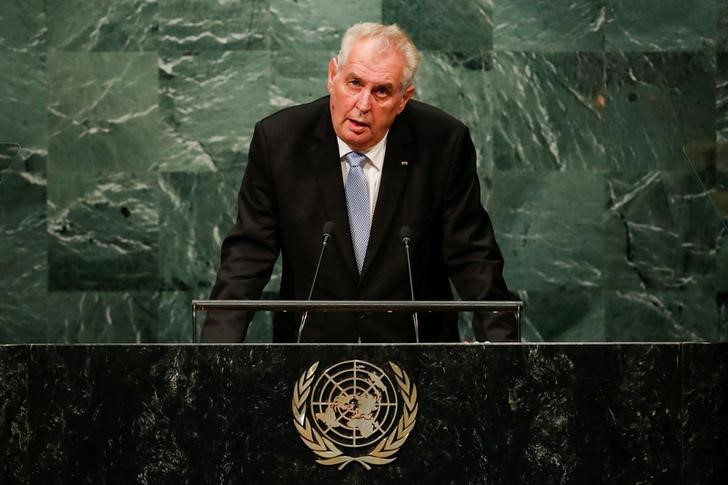PRAGUE (Reuters) - A new Czech Interior Ministry team set up this week to monitor and analyse "hybrid threats" to security such as disinformation campaigns has come under fire from the office of the country's own president.
The Centre Against Terrorism and Hybrid Threats (CTHH) comprises a team of 20 officials tasked with identifying threats from political radicalisation and terrorism and from foreign disinformation campaigns targeting the public.
The initiative follows warnings from the country's counter-intelligence service that Russia is actively targeting Czech public opinion over NATO, the European Union and other issues through cyber-warfare, propaganda, puppet groups and support for populist and extremist groups.
But President Milos Zeman, who is viewed as strongly pro-Russian, and his administration have led criticism of the new outfit, arguing that it could infringe free speech.
Zeman's spokesman, Jiri Ovcacek, has likened the centre to the communist-era censorship office, CUTI, and set up a special Twitter account on Monday to criticise the unit. He had tweeted 56 messages on the topic by Wednesday afternoon.
"A fundamental law applies in a democratic and free society: nobody can have monopoly for truth. The Interior Ministry's CUTI trampled over this law," said one of the tweets from Tuesday.
In a Dec. 26 address - prior to the centre's opening on Jan. 1 - Zeman said "we do not need censorship, we do not need idea police".
The new centre's chief, Eva Romancovova, said such criticism was puzzling as the president's office had been consulted over the creation of the unit during a national security audit and had raised no objections at the time.
"LACK OF UNDERSTANDING"
"The CTHH will not and cannot in any way censor any media or internet content," she told Reuters. "We consider this to be a very unfortunate lack of understanding of our work."
Zeman, who has taken the Kremlin's side on the conflict in Ukraine and has called for a lifting of Western sanctions against Moscow, has few executive powers as president under the Czech constitution, though he is chief of the armed forces and appoints governments. He is also popular with Czech voters.
Alarmed by what they see as Russian attempts to undermine their political and economic systems, a number of other European countries including Poland and the Baltic states have also established strategic communication teams in various government departments.
Finland has said several NATO and EU countries are planning to establish a centre in Helsinki to research how to counter "hybrid" warfare.

Germany's domestic intelligence agency said last month it had seen a striking increase in Russian propaganda and disinformation campaigns aimed at destabilising German society and targeted cyber attacks against political parties.